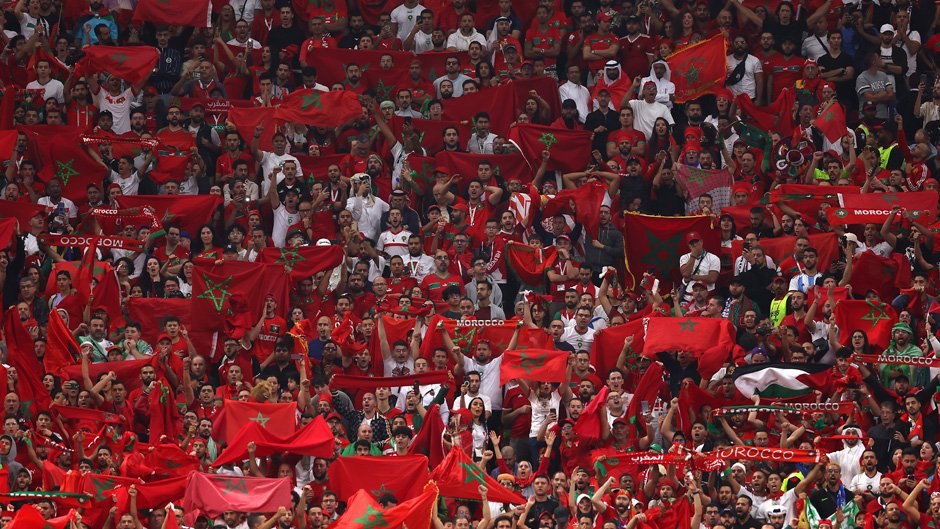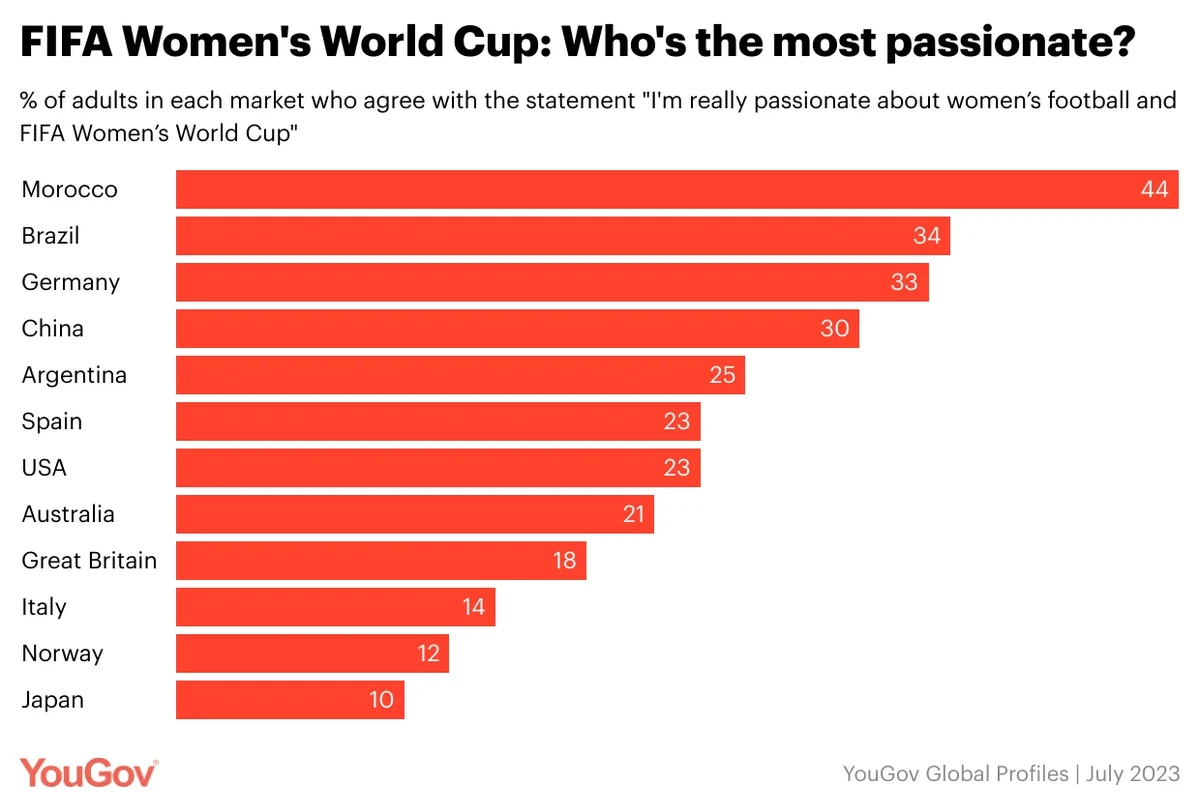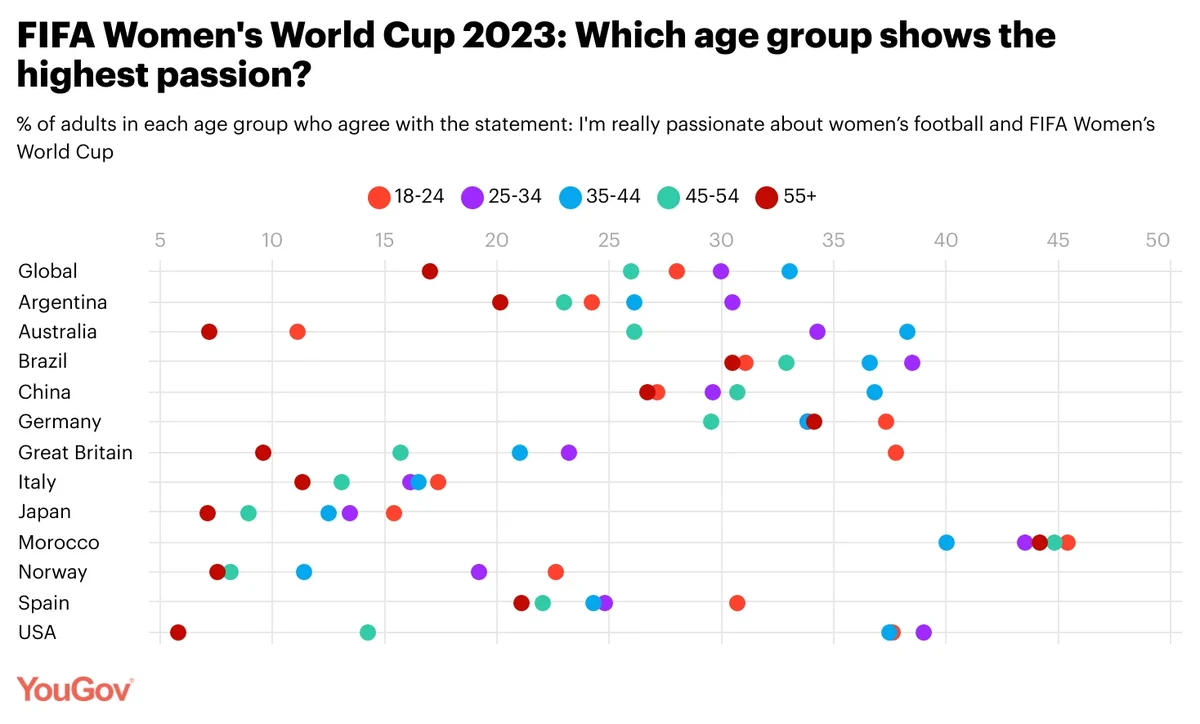
FIFA Women’s World Cup 2023: Gauging passion in key participating markets
The FIFA Women’s World Cup 2023 is set to break attendance records for women’s sports – so where is interest the highest?
As anticipation builds for the highly awaited FIFA Women’s World Cup 2023, we dip into YouGov Global Profiles data to explore the levels of passion exhibited by people worldwide for women’s football and the prestigious tournament itself.
Interest and passion levels for women’s football and the FIFA Women’s World Cup are the highest in Morocco (44%). After the dream run of the men’s team in the 2022 FIFA Men’s World Cup, a lot of consumers in the country will likely be following keenly to see how the women’s side fares this year.

Brazil follows next on the list, with a third of consumers agreeing that they are “really passionate about women’s football and the FIFA Women’s World Cup” (34%), with Germany (33%) trailing closely behind. Three-tenths of China’s consumers also agree with the statement (30%).
About a quarter of consumers in Argentina (25%), Spain (23%) and USA (23%) say the same. While rates in the US might seem relatively low for a team that has won a record four titles, it must be remembered that soccer competes for attention with a host of other, more well-established sports in the region.
A fifth of people in co-host nation Australia also express a passion for the tournament (21%), as do a similar share of Britons (18%). On a related note, here’s a piece on England’s Lionesses demonstrating how interest in the team has soared after its triumph in the Women’s Euro last year.
Italy (14%), Norway (12%) and Japan (10%) bring up the lower end of the list, but even in these markets at least a tenth of consumers say they are passionate about women’s football and its pinnacle event.
Looking at demographic data across these markets, levels of passion for the FIFA Women’s World Cup is nearly identical among all groups, with the exception of those aged over 55. Only 17% of those in that bracket (17%) agree with the statement. By contrast, those aged 35-44 are nearly twice as likely to say they have a passion for women’s football and the grand event (33%), which is five percentage points higher than even among those aged 18-24 (28%).

But these trends aren’t consistent across markets. One of the most interesting examples is Britain, where those aged 18-24 (38%) are four times as likely as the 55+ group (10%) and two times as likely as those aged 35-44 (21%) to express a passion for the FIFA Women’s World Cup.
In the US, those aged 25-34 are over six times more likely than the oldest cohort to say they have a passion for the event (39% vs 6%). What this shows is that even in markets which rank in the lower half on the global list, the interest in women’s football and the FIFA Women’s World Cup is very strong among the younger crowd, rivalling the rates seen in some of the markets that rank higher in the global list. For instance, the rates are higher among the youngest cohort in Britain (38%) and the US (38%) than among those in Brazil (31%) even though Brazil ranks much higher on the combined chart.